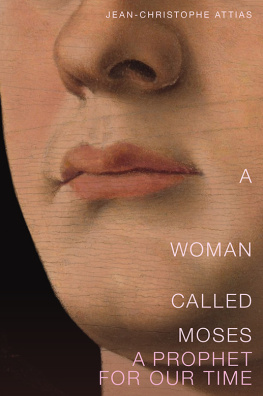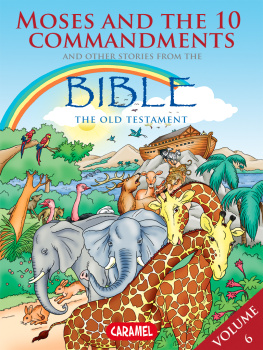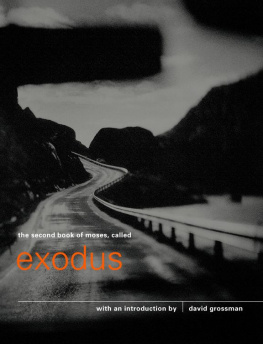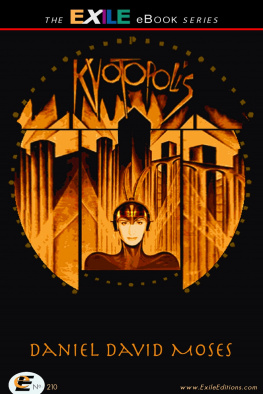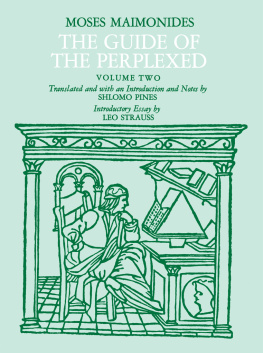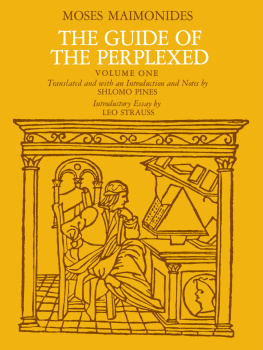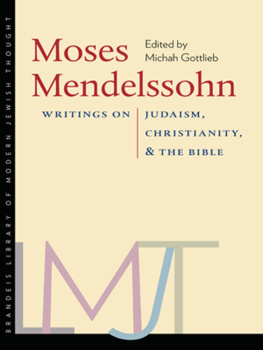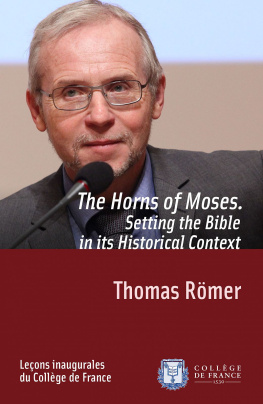Contents

A WOMAN CALLED MOSES
A WOMAN CALLED MOSES
A Prophet for Our Times
Jean-Christophe Attias
Translated by Gregory Elliott


This work has been published with the help of the French
Ministry of Culture Centre national du livre
Ouvrage publi avec le concours du Ministre franais
charg de la culture Centre national du livre
This English-language edition published by Verso 2020
Originally published in French as Mose fragile
Alma Editeur 2015
Translation Gregory Elliott 2020
All rights reserved
The moral rights of the author have been asserted
1 3 5 7 9 10 8 6 4 2
Verso
UK: 6 Meard Street, London W1F 0EG
US: 20 Jay Street, Suite 1010, Brooklyn, NY 11201
versobooks.com
Verso is the imprint of New Left Books
ISBN-13: 978-1-78873-639-8
ISBN-13: 978-1-78873-641-1 (UK EBK)
ISBN-13: 978-1-78873-642-8 (US EBK)
British Library Cataloguing in Publication Data
A catalogue record for this book is available from the British Library
Library of Congress Cataloging-in-Publication Data
A catalog record for this book is available from the Library of Congress
Typeset in Garamond by Biblichor Ltd, Edinburgh
Printed and bound by CPI Group (UK) Ltd, Croydon, CR0 4YY
Contents
Behold, I will stand before thee upon the rock in Horeb; and thou shalt smite the rock, and there shall come water out of it, that the people may drink (Exod 17:6).
A book on Moses. The idea wasnt mine. It was suggested to me. It would never have occurred to me spontaneously. And, even when it came up, I wasnt easily persuaded. That said, I couldnt get it out of my mind, couldnt get free of it. Someone said Moses to me and, curiously enough, Moses it was.
They could have said Abraham; they could have said a book on Abraham. Things would have been simpler then. It would have been out of the question. Exit Abraham and by the back door. Abraham is the first of a line: a father. But he is also the most terrifying of fathers. When God asks him to sacrifice his son Isaac, he doesnt hesitate for a second over brandishing the sacrificial knife. And God respects him for it. The last straw. Abraham: unworthy father.
Two more frres ennemis. Jacob himself begat a set of brothers who so hated one of their number Joseph that they planned to kill him at one stage, but finally sold him to merchants on their way to Egypt. It would seem that this is pretty much all our fathers are capable of engendering: frres ennemis.
Because your head is full of images of him, you might say to me: But Moses is at any rate a paternal figure! Yes, precisely, a paternal figure not a father. Moses had two sons. We know their names Gershom and Eliezer and thats about all. They did not have glorious careers and can boast no prestigious descendants. In this respect, Aaron Mosess brother was much more of a success: he founded an illustrious line of priests. And a little later, David King David didnt do badly: he was the first link in a glorious dynasty from which the Messiah would hail. Nothing of the sort in Mosess case.
Even as a paternal figure, and more so if by that we mean a bogeyman figure, Moses is not really up to it. Worse or better, if you like he was also (as we shall see) a maternal figure. In Moses, there is as much of the soft touch as the firm hand. Dont be taken in by his fits of anger, his violence, the cruel punishments he is capable of inflicting on sinners. His great strength often consists in being able to reject force: the power of renunciation and abdication.
No, Moses was not a father, but a teacher. And that is not the same thing. He demands nothing of us by virtue of our blood. He speaks to our minds. He wants us to be his free pupils. Moses teaches us. He expects our adherence to what he teaches, but we remain free to refuse it. We never cease to be the sons of our fathers. But we can always reject the lessons of our teachers. By casting himself as a master and setting us up as his pupils, Moses makes us in turn masters of what he teaches us. And because he is no longer here to clarify what he meant by that, he leaves us free to interpret his oeuvre.
We shall always have the advantage over him that the commentary possesses over the source especially (if some are to be believed) because Moses himself is not the true author of the works whose paternity is commonly attributed to him. He was at most the receiver and faithful transmitter of the word of Another. A Word that was transcribed, set down in writing: the Pentateuch* (the first five books of the Bible). And then another Word, one more fluid, more open, more alive, and always amenable to enrichment the Word heard by the ear and transmitted exclusively via the mouth: the oral Tradition.
Whats more, Moses, or his divine Inspirer, was not always crystal-clear. Their messages are sometimes ambiguous, contradictory, replete with omissions and things left unsaid. In them, light borders on darkness, is mysteriously combined with it. This disquieting zone of uncertainty is the hallowed ground of our freedom, as exegetes old or new.
So, a book on Moses. Yes, ultimately, why not? But what kind of book? The book of a historian of Judaism? Rather, the book of a Jewish historian, which is quite different. The book of a historian who, because he is Jewish, is suddenly liberated from the constrictions, constraints and petty pedantries of his main discipline. And the book of a Jew who, because he is a historian, and though he is the inheritor of a centuries-old tradition, is not its slave or hidebound guardian.
Nor is this a study of the historical Moses, assuming he ever existed: I happily consign that solemn, pointless inquiry to those more austere and patient than I. Nor is it a cultural study of representations of Moses: the size of the task is off-putting and the fruits of such a labour might prove equally so. Nor, as readers can well imagine, is it a sacred history: no authorized portrait, no pious image, is to be found here. Ive never gone in for ingratiating deference, and I dont intend to start now.
So what, then? What book? What kind of book? To know, or decide, I had only to repeat the original question: why, once floated, did the idea of a book on Moses, which had never hitherto crossed my mind, refuse to leave me? Why, once someone had pronounced the name Moses, was Moses suddenly there? And why did I find myself incapable of escaping that presence? And, first up, where in fact was Moses my Moses, since such, ultimately, is the subject of this book?
My own Moses was precisely where Moses wasnt. He was not to be found in the fire of miracles, the thunder of revelations, or the consecration of the Law. He was elsewhere, in gaps in the text, in the silence of words; in various mysterious, obscure moments of his implausible life story. He was where he stumbled, hesitated, gave up. He was where death stalked him, before finally striking. A man the contours of whose fate is unpredictable, always on the point of breaking apart, and ultimately doing so.
This Moses, who is more disturbing than reassuring, is not always easy to discern. He reveals himself by hiding; often we only see him from behind. Like God himself. We need to catch him in the shadows, at a distance, in the fold of words, in the hidden crevices of the text. We must go and seek him out, even if to do so is to invent him, and even if what we find has, in essence, been created by us.

